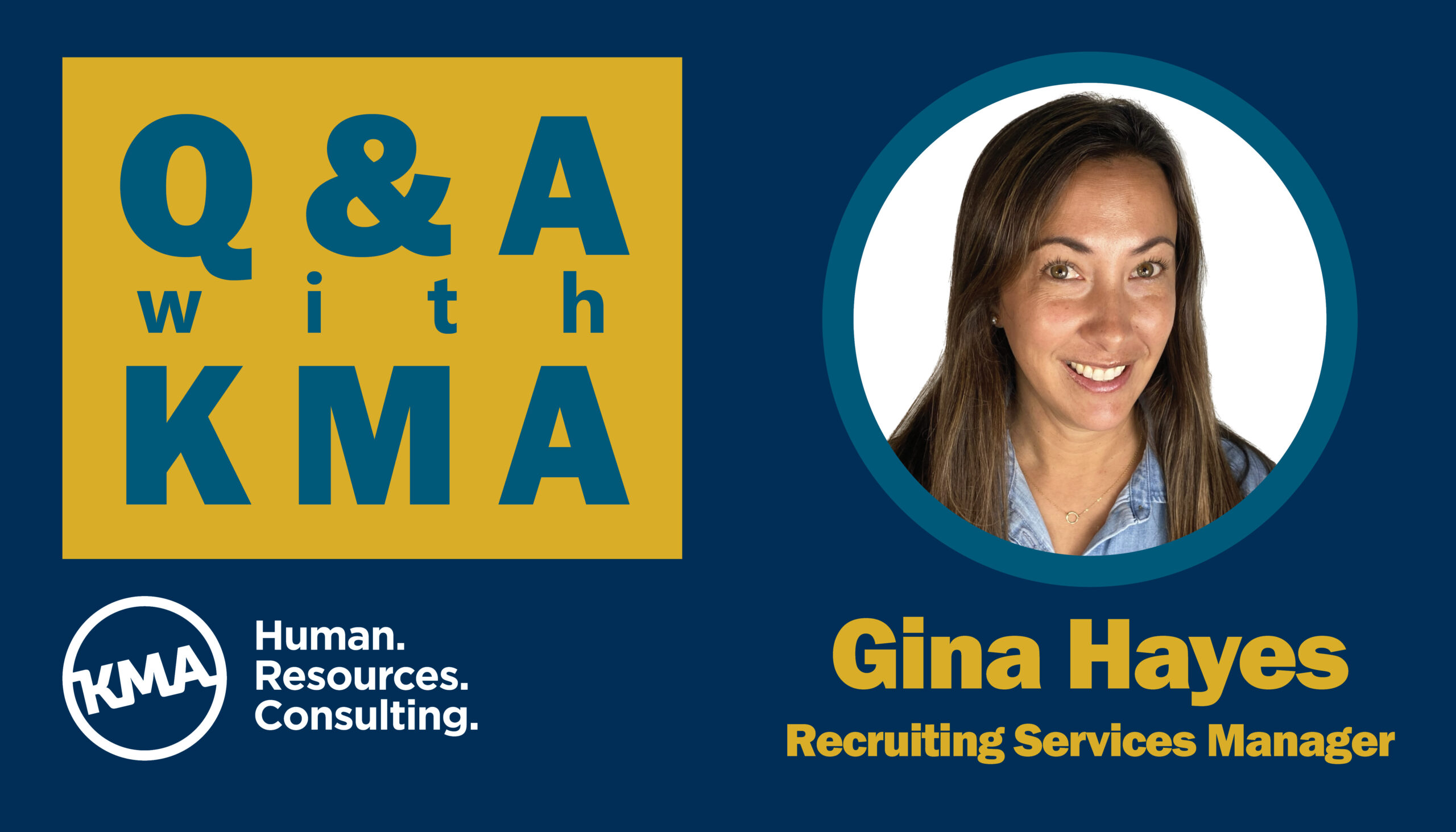
We asked Gina Hayes how recruiting has evolved throughout her nearly two decades in the industry. In this interview, Gina describes the biggest changes (and challenges), how she has adapted to the current hiring environment, and shares strategies for supporting her clients in identifying, courting and hiring the best talent in today’s competitive market.
Q: Gina, your recruiting career has spanned 17 years. What are the biggest changes you’ve seen over your tenure?
When I think back to when I first started in the staffing industry, I remember knowing immediately this was going to be a long-term fit for me. I was hired by a firm in Boston in 2005 and quickly started selling staffing services all over the city. It was a different world back then and candidates were lining up to get in front of me so I could turn around and quickly market them to my clients. It was like a race and I learned the industry in a fast and furious way. There were so many candidates to choose from and it was my job to get the right skillset to the right person at the right time.
Today, the recruiting and staffing industry feels much different. More technology, more efficiency and smarter job seekers. Candidates know exactly what they want and how to negotiate for it. From video interviews to salary transparency to remote jobs, the industry really has changed immensely. Even job tenure has changed. I remember thinking twice when I saw job tenure at less than 5-10 years and would cringe when I saw one or two “job hops” on a resume. Not today. In 2023, it’s not uncommon to see three or four job moves in just five years. Much of this comes from the pandemic and the need for changing jobs, but some of it also comes from the accepted desire to just see if there’s a better option. It’s been such a shift in the industry.
Q: How have you adapted your strategies to accommodate such a dramatic shift in the market for talent?
It’s all about approach. We have to approach candidates in different ways according to the market. A lot of my focus over the years has been on sourcing. This means finding candidates that didn’t apply to the job and contacting them to see if I can pique their interest. In today’s market, candidates want information right out of the gate. If I’m reaching out to someone to ask them if they’ll hear me out, I’d better be ready to talk salary and benefits. Candidates used to seem more intimidated to respond to these solicitations, worried their employer would find out, but today, they’re less afraid. It’s more like, “Sure, I’ll hear you out, but what’s in it for me?”
Q: How have you supported your clients as they struggle to attract the talent they need?
I’m a firm believer that every company I work with should have a unique plan for recruiting. It’s not a one size fits all. From all the job board options to the interview process to networking strategies, I’ll always create a customized plan and make sure we’re working together to make it happen. I also like to be upfront with my clients that our initial meeting will be very thorough. Whether they’re hiring for a director or entry level role, I want to know what it’s like to work for this company and I want to know why anyone would leave their job to come work here. I can’t sell it if I don’t feel it.
Q: What is the most rewarding part of your job?
The most rewarding part is knowing I’m part of a life decision for someone. In my previous job, I was placing candidates with companies all over the US and always felt humbled when they would take the job and actually relocate their family across the country. The trust and relationship you develop with a candidate during an offer negotiation is strong, and the pride you feel when you congratulate a client on their new opportunity is really what drives me.
Q: What are you preparing for in the next year or so?
More change. More automation and new expectations from candidates. The Gen Z workforce is going to throw us all for a loop if we’re not prepared! Candidate engagement is going to be more crucial than ever before.
Q: If you had one piece of advice to offer a business needing to hire talent, what would that be?
Try new things and be flexible. If you’re having a hard time finding a candidate, try something different. If you’ve never allowed employees to work from home, maybe it’s time to look at this policy and determine what needs to be done from the office and what can be done remotely. Also, put your sales hats on. The days of candidates sitting in a chair and selling themselves to you for 60 minutes are gone. Interviews are two-sided and, now more than ever, candidates need to be courted, to feel empowered, and to be in the driver’s seat.
Q: If you had one piece of advice to offer a job seeker, what would that be?
Be confident, but not greedy. It might come back and bite you. Always approach a job offer negotiation with the assumption that the company has another candidate they will hire if you decline. Starting off on the right foot is important and companies want to feel like you’re excited to work here too.
